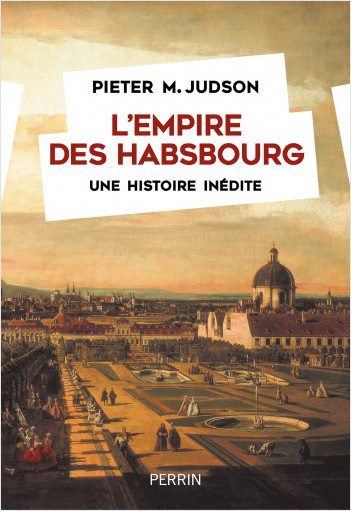
PHOTO: © HUBERTL / WIKIMEDIA COMMONS, CC BY-SA 4.0.

It is indeed an “unpublished history” that the Flemish historian Pieter Judson dedicates to the Habsburg Empire. The book was published in 2018 and has just been translated into French by Perrin Editions.
The reader should not expect a new account of the emperors and kings who reigned in Vienna or Budapest, because these pages reveal a deeply stimulating reflection on the notion of empire in the Danube space.
His study begins with the advent of the great Maria Theresa and the numerous reforms that took place during her reign and ends a few years after the fall of the Monarchy, in the 1920s. In its wake, this period witnessed the installation of a multitude of successor states in Europe that were strongly marked by its imprint. The choice of this chronological framework is in itself innovative because it invites us to consider how the Hapsburg legacy survived well after Emperor Charles’s formal renunciation of the throne.
The author starts from the principle that the study of the Habsburg Monarchy has for too long suffered from an analytical bias: scholars have regularly considered the Empire as something external to the nationalities that suffered under its oppression. This perspective presumes that the weaker forces, compelled to develop defensive measures, became stronger, jeopardizing the Empire’s stronghold.
On the contrary, Judson believes that national movements are in large part the products of imperial structures. Nationalities and Empire are not opposed to each other, but are instead defined in dialogue. The best proof of this is that until the outbreak of the First World War, nationalists sought solutions within the imperial legal framework. They did not really think of their national community outside this framework; the defense of their historical and cultural rights only made sense within the imperial whole.
This is a specialist’s book, sometimes difficult to read for those who are not familiar with the customs and habits of Central Europe. It goes against the all-too commonly accepted theory of the inevitable dissolution of the Habsburg Empire. Pieter Judson reverses the perspective and instead highlights the extraordinary creativity of the imperial political system, its capacity to generate a citizenship, or patriotism, which puts national logic at work in the background. According to the author, the Habsburg imperial patriotism is an authentic political success, which allowed the assorted inhabitants of the Habsburg ensemble to feel bound by an ideal of universal citizenship guaranteed by that dynasty.
By taking the imperial concept as a starting point for his historical reflection, Pieter Judson offers a renewed vision of Central Europe as a functioning whole. He thus criticizes the myth of an empire undermined by economic backwardness or gangrenous by irreconcilable cultural differences that condemned it to death in a more or less short term. In this book, the Empire is no longer seen as a straitjacket, an obstacle to development, but on the contrary–a driving force for nations.
By combining studies borrowed from the entire historiography of Central Europe, Judson precisely analyzes the driving forces of this fascinating Empire: the institutions, the cultural and social practices that bound it together, as well as the irrational and emotional aspects that kept it alive in the hearts of its peoples. The entry into the First World War was fraught with unforeseen consequences that altered the character of the Empire. It prevented the proper functioning of all the institutions that had allowed, for decades, the embodiment of imperial citizenship. The war destroyed the feeling of equality before the law shared by the different peoples gathered under the tutelary figure of Franz Joseph. According to Judson, the military elites bear most of the blame because by seizing power through the conflict, they broke trust with those who would have remained loyal. The tragedy of Austria-Hungary can be summed up in this formula from the historian Laurence Cole of the University of Salzburg, reported by Judson: “it is more the ruling elite that lost its faith in its peoples than the reverse.”
The study is fascinating. However, the reader will remain a bit frustrated, for the story of the final fall of the Empire remains elusive. More descriptive than explanatory, the book gives rather little space to the choices and responsibilities of the rulers in its collapse, leaving one to speculate that the fall was inevitable … even though the contents of the book tend to prove the opposite.